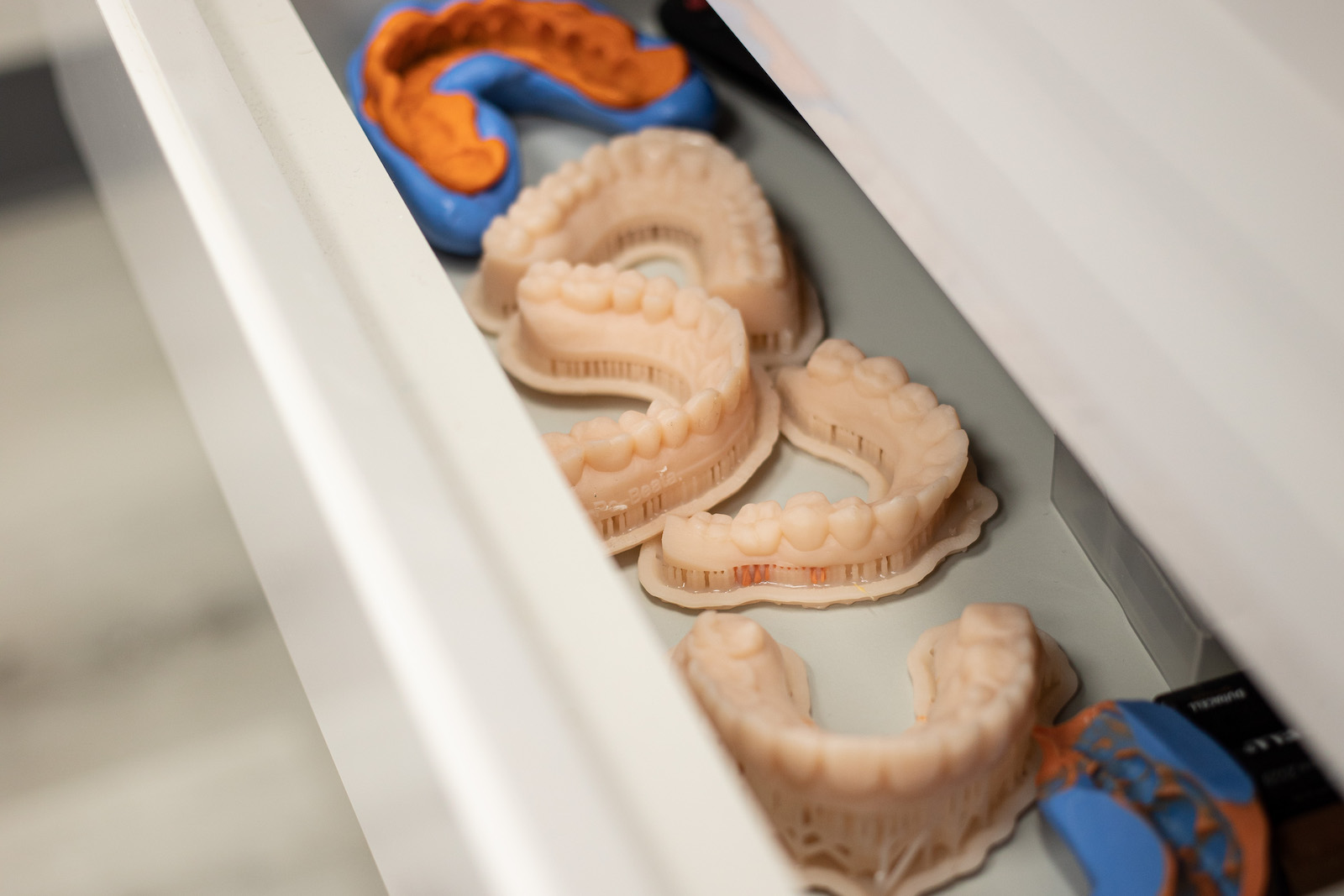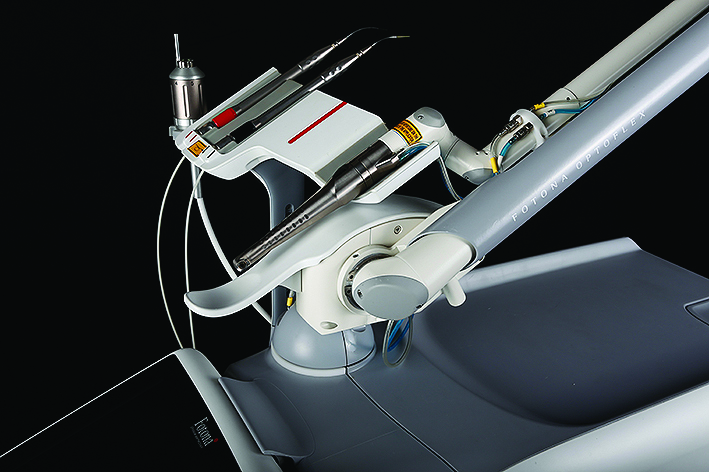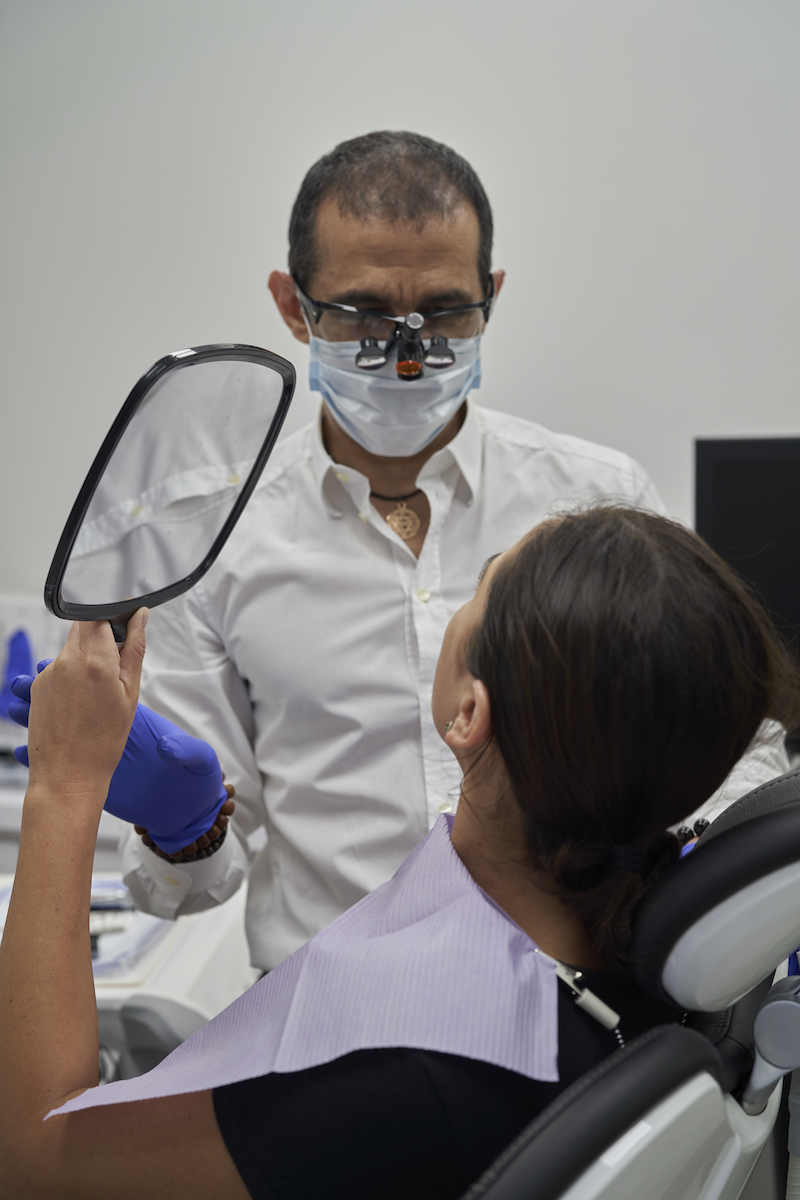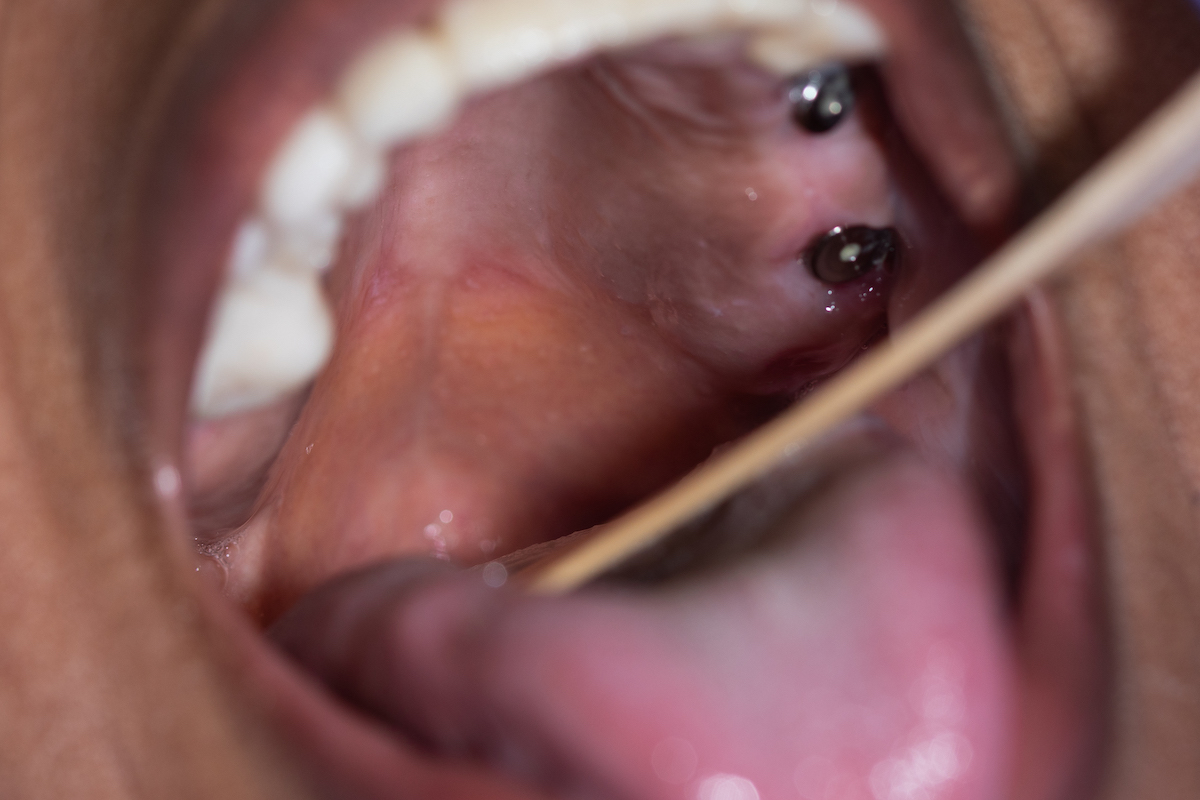What is the difference between veneers, crowns, and implants?
Veneers aren’t the same as dental implants or crowns. Veneers cover only the front surface of the tooth, while crowns encase the entire tooth. Veneers are also thinner than crowns: about 1 mm, compared to 2 mm.
Veneers are less invasive, too. If you need a crown, your dentist will have to file or ground down more of your tooth to prepare it for the crown than would be necessary for the application of a veneer.
Meanwhile, an implant is installed in the bone to replace a missing tooth, and a crown is placed on top of that. It can take several months after the implant is placed for the area around it to heal enough for the replacement tooth to be placed on top.
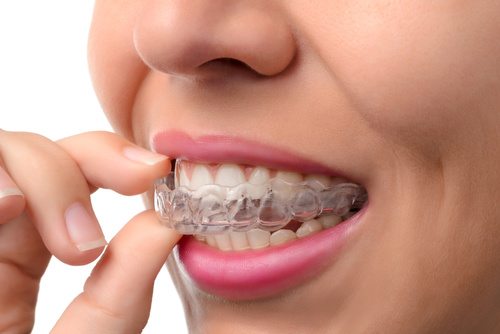
How to take care of your veneers after they’re placed
Unlike other dental procedures, the recovery process doesn’t take an extended amount of time. Instead, once the veneers are cemented on, and any anesthetics wear off, you can eat and chew as you normally would. While the anesthetic is wearing off, be conscious of not chewing on your cheeks or tongue.
In some cases, immediately after the veneers are applied, you may notice that they feel a little rough. These rough spots (usually from extra cement that can adhere to the veneer) wear down after several days of normal eating and teeth brushing. If they don’t, your dentist can smooth them out.
Traditional porcelain veneers typically last at least 10 yearsTrusted Source (and some research suggests that they can sometimes last as long as 20 yearsTrusted Source), and no-prep veneers last around 5 to 7 years. Taking certain precautions can help make sure that you get the longest lifespan out of them as possible. These precautions include:
- Don’t chew on hard objects like pens, ice, or your fingernails.
- Never use your teeth to open packaging.
- Try not to chew with your front teeth. Eat harder foods with your back teeth only; cut up hard foods so that this is possible.
- If you grind or clench your teeth at night, get a splint or retainer to protect your veneers.
- If you play sports, you should wear a mouth guard.
- If you grind or clinch your teeth, you should get a mouth guard or retainer.
